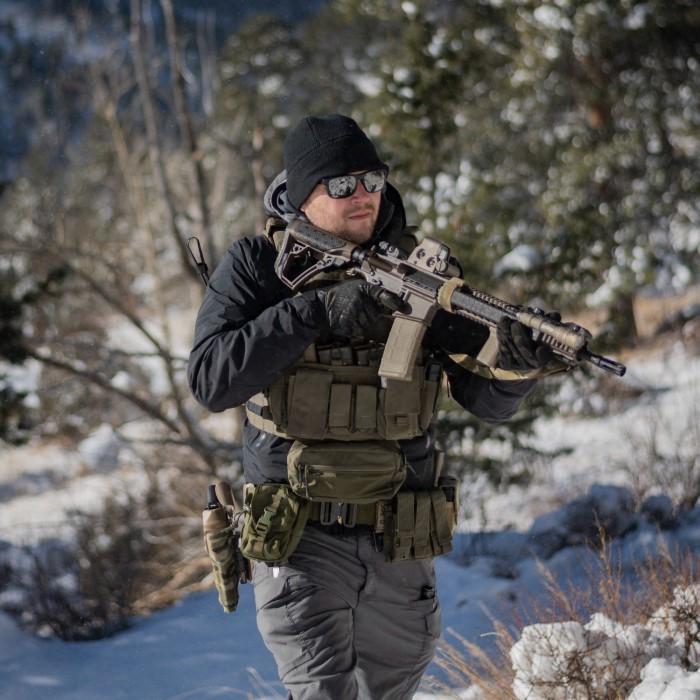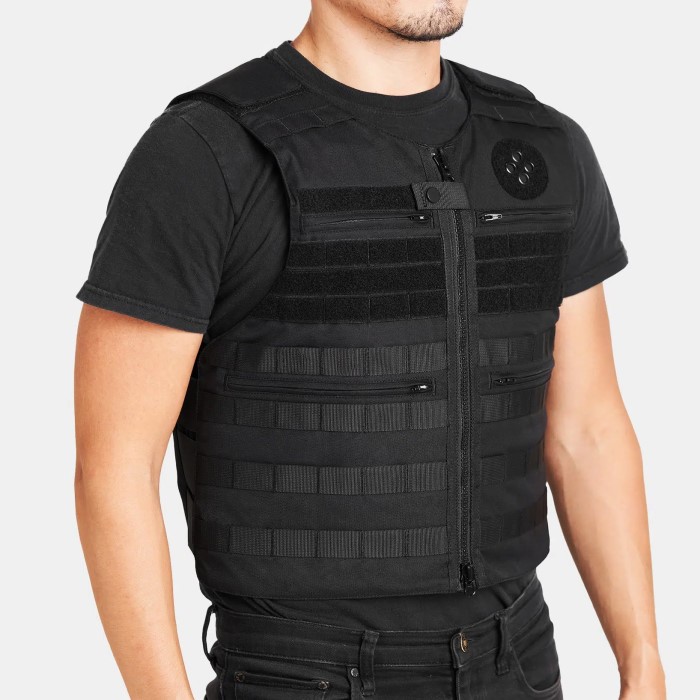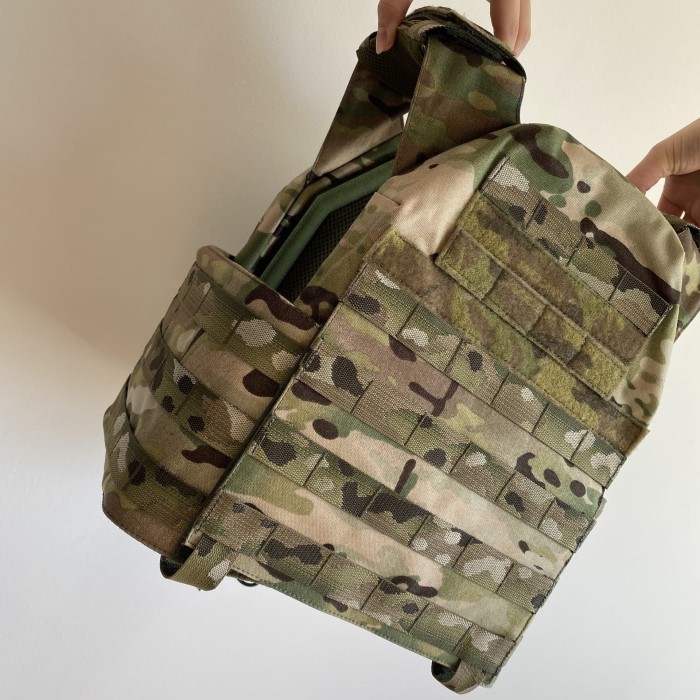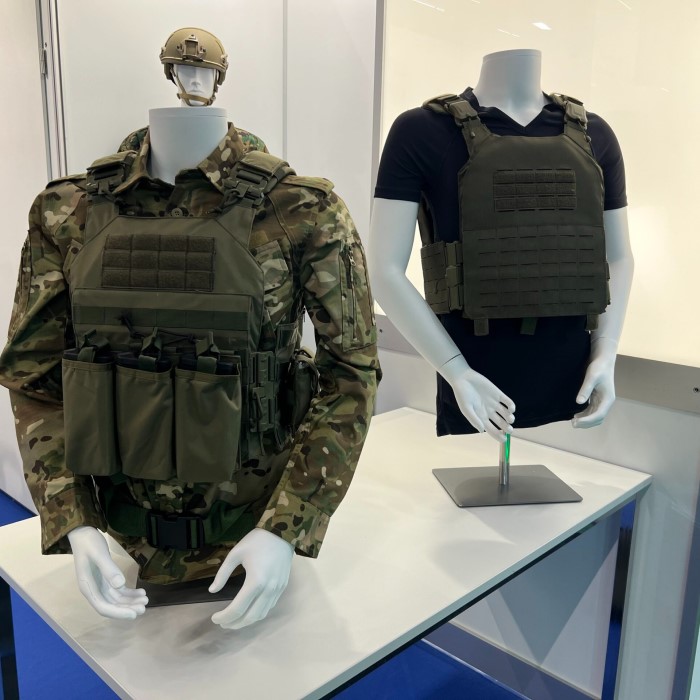Introduction
The growing popularity of personal safety gear has led many people to consider wearing bulletproof vests. However, a common question arises: “Is it illegal to wear a bulletproof vest?” The answer varies depending on the state you reside in. Some states have specific laws governing the use of body armor, while others do not. Understanding the legality of wearing bulletproof vests is essential for those who wish to enhance their safety without running afoul of local laws. This guide will explore the regulations regarding bulletproof vests state by state, informing readers about the potential legal implications of wearing this protective gear.
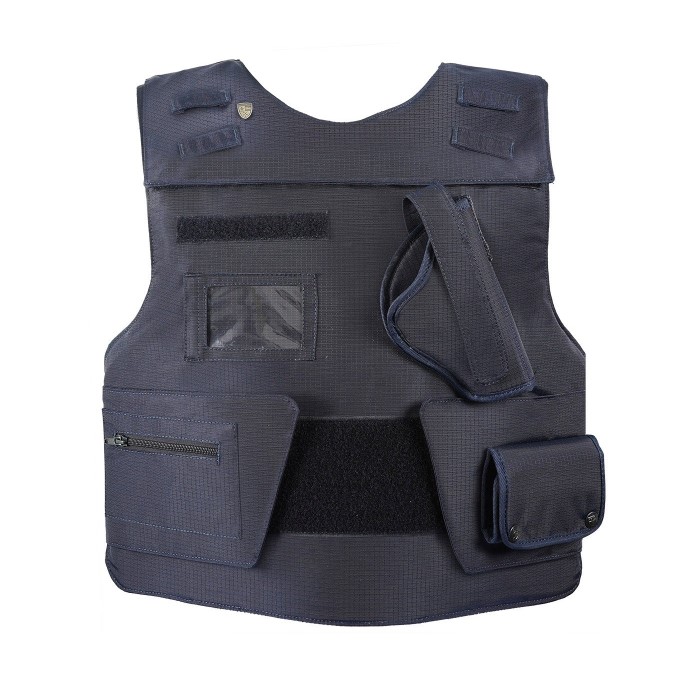
Understanding Bulletproof Vests
Bulletproof vests, often referred to as body armor, are designed to protect individuals from projectiles, including bullets and knives. They serve various purposes, including personal safety for civilians, protective gear for law enforcement, and equipment for military personnel. Understanding how bulletproof vests function and their intended use is crucial for recognizing the context within which legal regulations apply.
- Types of Bulletproof Vests: Bulletproof vests come in different types, including soft and hard armor. Soft armor provides protection against low-velocity projectiles, while hard armor can withstand higher caliber rounds. The specific type and level of protection often determine how the vest is classified legally.
- Ballistic Ratings: Body armor is subject to ballistic testing which assigns ratings based on its protective capabilities. These ratings, such as Level II or Level IIIA, inform users of the types of threats the vest can handle. Higher-rated vests often offer better protection, but they may also face stricter regulations in certain states.
- Usage Context: The context in which bulletproof vests are worn significantly influences their legal status. For example, wearing a vest while working a law enforcement job may be treated differently than wearing one in a civilian context during everyday activities.
Is It Illegal to Wear a Bulletproof Vest?
The legality of wearing a bulletproof vest varies from state to state. Here, we will outline the regulations in various states across the country to provide clarity on the question: “Is it illegal to wear a bulletproof vest?” This state-by-state breakdown will help clarify how laws differ and where individuals might face restrictions.
State-by-State Guide to Bulletproof Vest Regulations
1. California
In California, it is legal for civilians to wear bulletproof vests. However, there are restrictions on selling vests to minors. Additionally, individuals with felony convictions may face limitations in wearing body armor.
2. New York
New York allows civilians to wear bulletproof vests. However, it is illegal to possess or wear body armor while committing a felony. This law emphasizes the context in which body armor is worn as a significant factor in its legality.
3. Texas
In Texas, wearing a bulletproof vest is legal, and there are no significant restrictions on their use by civilians. This includes various types of body armor. However, it is still illegal to wear one while committing a crime.
4. Florida
Florida permits civilians to wear bulletproof vests. However, like other states, it prohibits individuals convicted of felonies from owning or wearing body armor during the commission of a crime.
5. Illinois
In Illinois, it is legal for civilians to wear bulletproof vests. However, individuals with felony convictions cannot legally obtain or wear them. Law enforcement officers are exempt from this restriction while performing their duties.
6. Pennsylvania
Pennsylvania allows individuals to purchase and wear bulletproof vests. However, like many states, restrictions exist for convicted felons regarding ownership and use of body armor.
7. Ohio
Ohio has no laws prohibiting the wearing of bulletproof vests. However, similar to other states, wearing one while engaging in illegal activities is punishable under law.
8. Virginia
Virginia permits individuals to wear bulletproof vests. There are no statewide restrictions on ownership; however, convicted felons may have limitations on their use.
9. Minnesota
In Minnesota, it is legal for civilians to wear bulletproof vests. As with other states, individuals with felony backgrounds may face restrictions on ownership and use.
10. New Jersey
New Jersey allows civilians to own bulletproof vests. However, individuals convicted of specific offenses may face restrictions on wearing body armor, particularly while committing a crime.
Legal Considerations When Wearing Bulletproof Vests
Understanding the legal implications of wearing a bulletproof vest is essential for anyone considering their use. Here are several considerations to keep in mind:
Felony Convictions
- General Restrictions: In many states, individuals with felony convictions face strict restrictions when it comes to wearing or possessing body armor, including bulletproof vests. This means that those who have been convicted of serious crimes may not legally own or wear these protective garments.
- Recent Convictions: The relevance of felony convictions is particularly significant for those with recent criminal histories. Legislators may be more concerned about recent offenders, as these individuals could potentially pose a greater threat to public safety if they have ready access to body armor.
- Variations by State: The specific laws regarding felony convictions and body armor vary by state. Some states may permit certain individuals with prior felonies to possess body armor after a certain period, while others impose a lifetime ban. Therefore, individuals should thoroughly research the laws in their state to understand their rights and limitations.
Intent
- Legal Implications of Intent: The intent behind an individual’s decision to wear a bulletproof vest plays a critical role in its legality. If a person wears body armor with the purpose of committing a criminal act, they can face serious legal consequences regardless of local laws that may otherwise allow for ownership.
- Determining Intent: Determining intent can be challenging, as it often relies on the circumstances surrounding the wearer’s behavior. Law enforcement may examine the individual’s actions and context to establish whether there was an intent to engage in criminal activity.
- Defensive vs. Offensive Use: The law may differentiate between defensive use—where the vest is worn for personal protection in dangerous environments—and offensive use, where the gear is worn to facilitate or promote illegal actions. This distinction further complicates the legal landscape surrounding bulletproof vest usage.
Local Ordinances
- Variability of Local Laws: Beyond overarching state laws, local jurisdictions may implement their own regulations regarding the possession and use of body armor. These local ordinances can vary significantly, and individuals must be aware of the regulations in their specific area before choosing to wear a bulletproof vest.
- Checking Local Regulations: It is advisable for anyone considering wearing body armor to check with local government offices or law enforcement agencies. This ensures that they are aware of any additional restrictions or requirements that may not be covered by state laws.
- Potential Consequences of Non-Compliance: Failure to comply with local ordinances can result in fines or legal consequences. Individuals could face criminal charges if they wear bulletproof vests in violation of local laws, highlighting the importance of staying informed about the local legal environment.
Professional Use
- Exemptions for Professionals: Law enforcement officers, military personnel, and specific security professionals often have different legal frameworks regarding the use of bulletproof vests. Many states provide exemptions that allow these professionals to wear body armor as part of their official duties without facing legal repercussions.
- Mandatory Use for Duties: For police and military personnel, wearing body armor is frequently mandated as part of their uniform, especially in high-risk situations. The use of such protective gear is essential for their safety, enabling them to perform their duties with a reduced risk of injury from firearms or other threats.
- Training and Guidelines: Professionals who wear body armor typically undergo training including proper usage and guidelines for the vest’s care. This ensures that they are not only legally compliant but also proficient in utilizing body armor effectively during their work.
Insurance and Liability
- Consideration of Liability: When individuals contemplate using bulletproof vests for personal defense, they must carefully consider liability issues.
- Insurance Implications: Individuals may need to consult their insurance providers regarding coverage related to the use of bulletproof vests.
- Legal Defense: In cases where a wearer faces legal repercussions following an incident while wearing body armor, they may require legal defense to navigate the complexities involved. The presence of a bulletproof vest could impact a legal case, requiring thorough evaluation by legal professionals to understand the ramifications.
Frequently Asked Questions (FAQs)
1. Why Are Bulletproof Vests Regulated?
Bulletproof vests are regulated due to their potential misuse in criminal activities. Regulations aim to prevent individuals with violent criminal histories from obtaining body armor, thereby reducing threats to public safety.
2. Can I Wear a Bulletproof Vest During Public Events?
Generally, wearing a bulletproof vest during public events is permitted unless specific local laws state otherwise. Some events may have security measures requiring individuals to refrain from wearing body armor. Always check event-specific guidelines.
3. Is There a Difference Between Wearable and Concealable Armor?
Yes, wearable armor refers to bulkier types of body armor used by law enforcement, while concealably worn armor is designed to fit under clothing. Legal regulations may vary based on the type of armor.
4. Are There Exceptions for Law Enforcement?
Yes, law enforcement officials are typically exempt from regulations restricting body armor use. They wear bulletproof vests as part of their uniform while carrying out their duties.
5. What Should I Do If I’m Unsure About Local Laws?
If you’re unsure about local laws regarding bulletproof vests, consider consulting legal experts or researching local ordinances. Always err on the side of caution to ensure compliance with regulations.
Conclusion
In summary, understanding the legality surrounding bulletproof vests is crucial for individuals who wish to wear them. The answer to “Is it illegal to wear a bulletproof vest?” varies greatly based on state laws and local regulations. Some states impose stringent restrictions based on criminal history, while many allow civilians to purchase and wear body armor.
As personal safety concerns continue to rise, being informed about these laws can empower individuals to make safe choices. Ultimately, if you choose to wear a bulletproof vest, always stay informed about the legal implications of your actions. Keeping yourself well-informed ensures you enjoy the protective benefits of bulletproof vests while remaining compliant with state laws. Remember, the intent and context of wearing this protective gear can significantly affect its legality.
